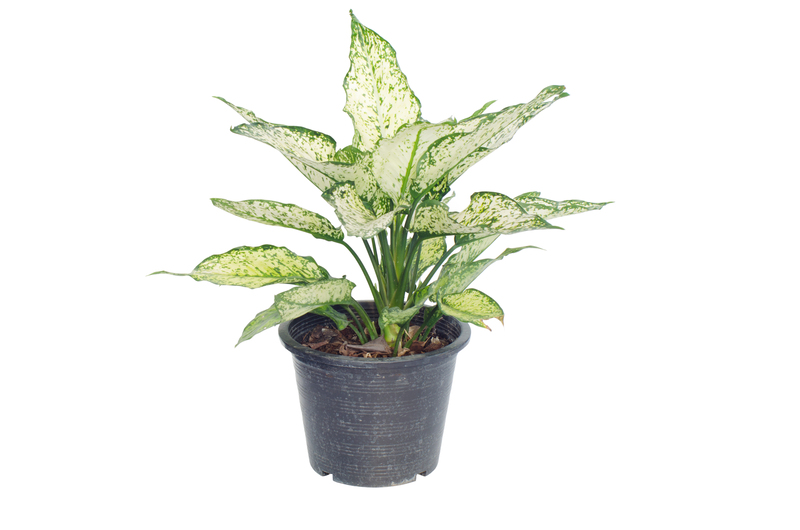Waste Not, Want Not: Rich Soil from Organic Waste
Posted on 19/09/2025
Waste Not, Want Not: Rich Soil from Organic Waste
Transforming organic waste into nutrient-rich soil is one of the most efficient and eco-friendly strategies for sustainable living. In today's world, rising concerns about waste management and soil health converge at the practice of composting. Is it possible to turn household scraps into valuable soil? Absolutely! In this comprehensive guide, we'll explore the secrets of making rich soil from organic waste, the many benefits of this process, and actionable steps to get you started.
Understanding Organic Waste and Its Impact
Organic waste refers to any biodegradable matter produced from plants or animals, most commonly found in kitchen scraps, yard clippings, and paper products. Too often, this waste ends up in landfills, contributing to methane emissions and overburdened waste systems. However, when properly managed, organic waste is a resource that can be recycled naturally, returning nutrients to the earth.
- Food scraps: vegetable peels, fruit rinds, coffee grounds, eggshells
- Yard waste: grass clippings, leaves, pruned branches
- Other biodegradable products: unbleached paper, cardboard, cotton, wood chips
Environmental Importance of Recycling Organic Waste
Diverting organic waste from landfills is crucial for multiple reasons:
- Reduces Greenhouse Gas Emissions: In landfills, organic waste decomposes anaerobically, releasing methane, a potent greenhouse gas.
- Preserves Natural Resources: Composting returns essential nutrients to the soil, reducing the need for chemical fertilizers.
- Decreases Waste Management Costs: Less waste in the landfill means lower handling and processing costs for communities.

From Scraps to Soil: How Organic Waste Becomes Rich Soil
Making rich soil from organic waste involves a natural process called composting. When done correctly, composting turns discarded material into a dark, crumbly, earthy-smelling soil amendment that nurtures plants. Let's break down this fascinating journey step by step.
Step 1: Collecting and Sorting Organic Materials
- Start by separating organic waste from your household garbage. Keep a designated compost bin in the kitchen for ease.
- Ensure that the material is biodegradable and free from non-organic contaminants.
- Remember: not all biodegradable materials are created equal. Avoid waste from meat, dairy, and oily foods in basic home composting.
Step 2: Building the Compost Pile
A successful compost pile relies on the right mix of "greens" and "browns."
- Greens: nitrogen-rich materials like fruit and vegetable scraps, coffee grounds, green leaves.
- Browns: carbon-rich items such as dried leaves, paper, cardboard, wood chips.
The ideal ratio for composting is roughly 2 parts brown to 1 part green material. Layer these materials to promote efficient decomposition.
Step 3: Maintaining the Compost Pile
- Turn the pile every 1-2 weeks with a pitchfork or shovel to aerate it. Oxygen accelerates decomposition and prevents foul odors.
- Monitor moisture levels; the pile should be as damp as a wrung-out sponge.
- Keep the compost covered to retain moisture and deter pests.
With proper care, you'll notice your pile shrinking and heating up, both signs of active composting.
Step 4: Harvesting the Compost
Within three to six months, your organic waste will decompose into a dark, crumbly material with an earthy aroma. Sift your compost to remove larger, undecomposed bits--these can go back in the bin for another round. This finished product is known as black gold or humus, a natural fertilizer for gardens, lawns, and houseplants.
The Benefits of Rich Soil Made From Organic Waste
Using nutrient-rich soil derived from organic waste has far-reaching benefits for the environment, your garden, and your wallet:
1. Enhanced Soil Health
- Adds structure and aeration to soil, improving drainage and root growth.
- Increases water retention, reducing the need for frequent watering.
- Creates a thriving environment for beneficial soil organisms like earthworms and microbes.
2. Sustainable Waste Management
- Reduces landfill waste volumes significantly.
- Cuts down on the need for chemical fertilizers and pesticides by naturally enriching the soil.
- Lowers greenhouse gas emissions by enabling aerobic rather than anaerobic decomposition.
3. Economic Advantages
- Saves money on store-bought compost and fertilizers.
- Lowers municipal collection and landfill management expenses.
Best Practices for Making Rich Soil from Organic Waste
Mastering the art of soil enrichment from organic waste doesn't have to be difficult. Follow these time-tested tips to maximize your results:
Compost Bin Types and Placement
- Choose a bin that fits your space: Tumblers are great for small yards, while homemade pallet bins suit larger gardens.
- Place your bin in a shady, well-drained spot close to your kitchen for easy access.
What Not to Compost
- Meat, dairy, and oily food waste: These can attract pests and cause odors.
- Pet waste (from carnivores): May contain hazardous pathogens.
- Diseased plants:
*To ensure rich, healthy soil from your organic matter, keep non-compostables out of your pile.
Composting Methods: Traditional vs. Advanced Techniques
- Hot composting: Involves actively turning and monitoring your pile for quick decomposition (2-6 months).
- Cold composting: Slower, with less maintenance, but can take a year or more.
- Vermicomposting: Uses worms (usually red wigglers) to convert waste into prized worm castings, excellent for potted plants and gardens.
- Bokashi fermentation: An anaerobic option that pickles waste using a special bran before final composting or burying in soil.
Choose a method that suits your time, space, and desired speed.
Common Challenges and How to Overcome Them
Foul odors?
If your compost pile smells, it likely has too much green material or is too wet. Add more browns and aerate frequently to restore balance.
Pest Problems?
Keep your pile covered, avoid composting meat and dairy, and always bury food scraps under a layer of browns.
Pile isn't breaking down?
- Chop larger materials into smaller pieces for faster decomposition.
- Ensure the pile remains moist and receives enough air by turning regularly.
Using Your Garden Gold: Applications and Tips
Once you've created your own fertile soil from organic waste, you can use it in a variety of ways:
In the Vegetable Garden
- Work a generous layer into planting beds in spring and fall for ongoing nutrient supply.
- Sidedress growing plants for an easy nutrient boost.
For Lawns and Houseplants
- Top-dress lawns with a thin layer to encourage lush growth.
- Mix compost into potting soil for houseplants to enhance water and nutrient retention.
Trees, Shrubs, and Flower Beds
- Spread beneath trees and around shrubs as a mulch--this regulates soil temperature, prevents weeds, and feeds the roots.
- Blend into flower beds to produce more vibrant blooms and healthier plants.

Community Composting: Scaling Up for a Greener Future
Enriching soil with organic waste doesn't have to happen behind your house alone. Many municipalities now offer composting programs, and community gardens often have shared compost bins that accept local food and yard waste. Participating in these systems can magnify the impact, reduce city waste, and create community bonds around sustainability.
- Find neighborhood drop-off points or sign up for curbside food waste collection.
- Get involved in community-supported agriculture projects using local compost.
Conclusion: Cultivating a Better World with Rich Soil from Organic Waste
Waste not, want not--this age-old adage has never been more relevant. By embracing organic waste recycling to create fertile, nutrient-dense soil, individuals not only cut down on environmental impact, but also enrich their gardens and communities. It's a simple act with profound benefits, from reducing landfill waste to restoring vital fertility to the earth. Whether you are a novice gardener or a seasoned environmentalist, it's time to transform your table scraps into gardener's gold and help shape a sustainable future--one handful of rich soil at a time.
Latest Posts
Waste Not, Want Not: Rich Soil from Organic Waste
Strategies to Protect Your Garden from Strong Winds
Revamp Your Outdoor Space with 5 Cost-Effective Garden Ideas
An introduction to the versatile practice of container gardening

